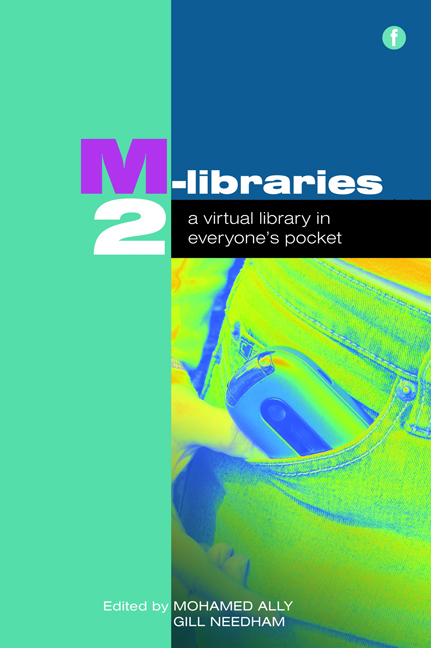Conclusion
Published online by Cambridge University Press: 08 June 2018
Summary
The book following the First International M-Libraries Conference was published in 2008. Two years later, this collection of papers from the second conference indicates the extent to which mobile service development and delivery has taken hold in libraries and information services around the world. What are the trends that underlie this development?
As indicated in many of the papers (chapters 1, 2, 20), mobile devices are increasingly ubiquitous around the world, and both libraries and the publishing industry are therefore considerably more aware of their importance and potential. This increased activity is reflected in the fact that three times as many papers were submitted for the Second International M-Libraries Conference in 2009 as for the first conference in 2007. Mobile delivery of library services has evolved from the largely experimental to the mainstream in many areas.
Although there is ongoing technical innovation, the main emphasis has shifted to implementation and service delivery. Libraries are working to capture the potential of mobile delivery to enhance the service experience they are offering to their users. This would appear to be particularly relevant in an environment where the relevance of library services is being questioned.
In the more prosperous parts of the world, the most sophisticated devices, particularly the iPhone and Android, are gradually becoming affordable. This has enabled developers to be increasingly ambitious and creative (Chapter 11). In contrast, we see some of the most creative implementation plans in the developing world, where telephone companies are helping to make access affordable (chapters 13 and 24) and mobile delivery is becoming mainstream for official information services. These developments will make it possible for everyone to have a virtual library in their pocket.
In the higher education sector, universities are beginning to take an integrated approach to mobile delivery. Examples include the suite of mobile services launched at Ryerson University and spearheaded by the library (Chapter 19) and the podcasting project at the University of British Columbia (Chapter 17).
- Type
- Chapter
- Information
- M-Libraries 2A virtual library in everyone's pocket, pp. 265 - 266Publisher: FacetPrint publication year: 2010

